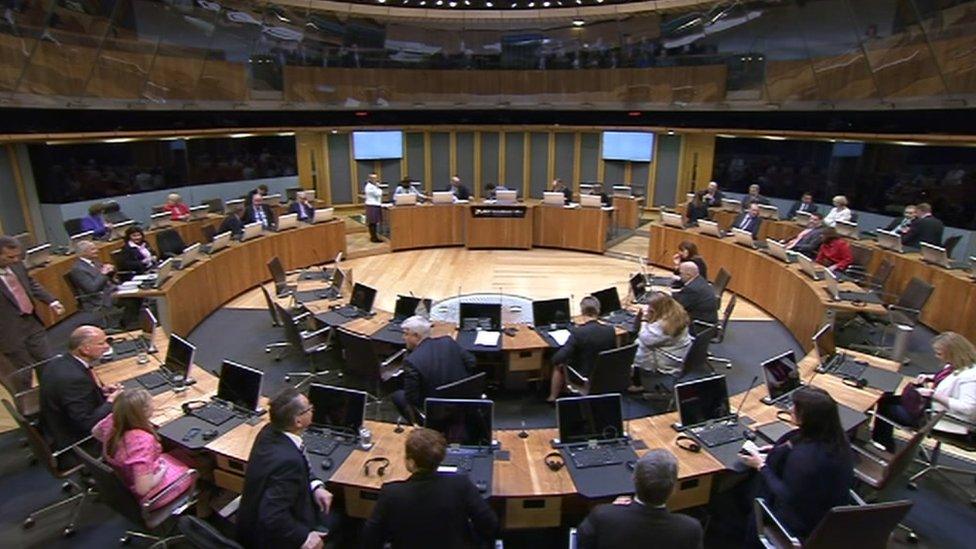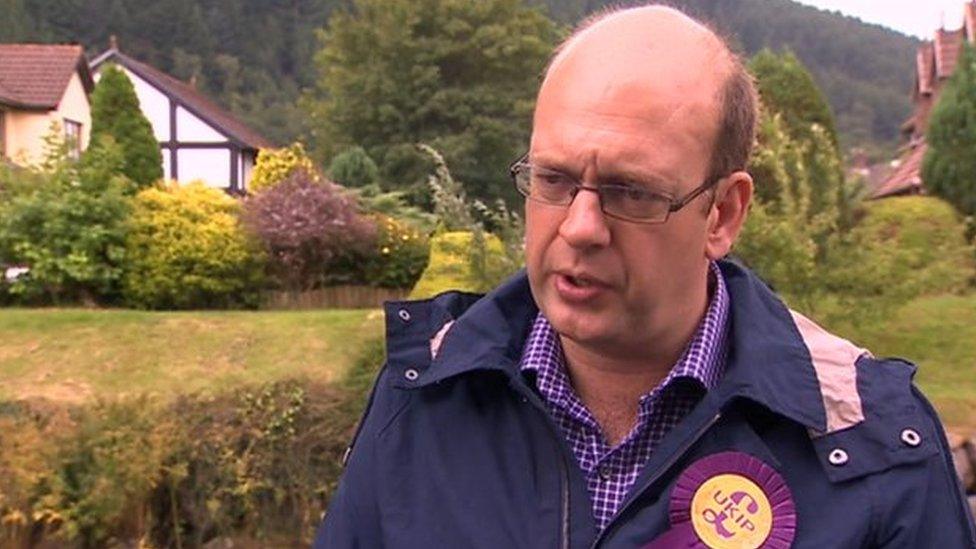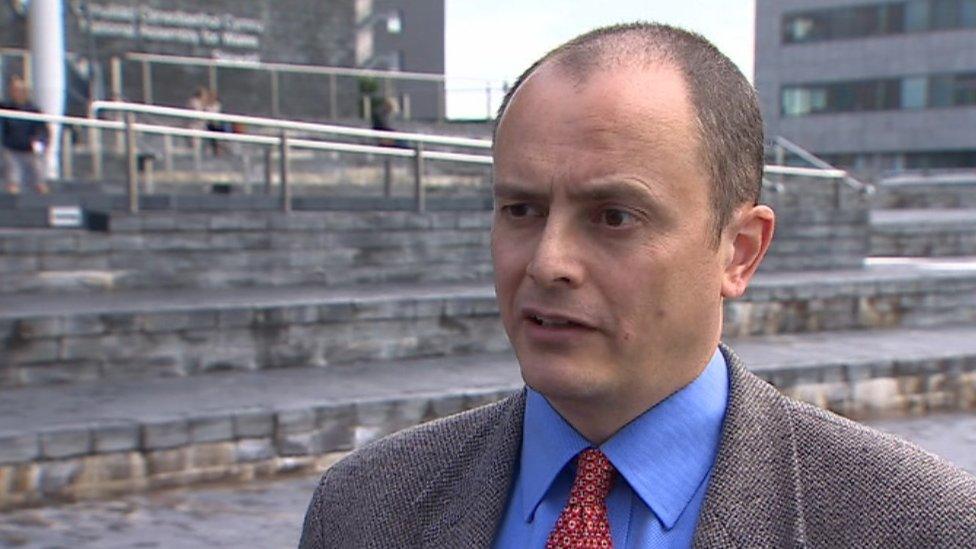Labour AM warns of threat to devolution in Brexit vote wake
- Published

Disillusionment with politicians shown by the vote for Brexit could threaten the existence of the assembly in years to come, a Labour AM has warned.
Jeremy Miles, AM for Neath, said the institution should be on its "guard".
His colleague Lee Waters also suggested "complacency" could change the public's support for the assembly.
Welsh voters backed devolution in two referendums in 1997 and 2011, but rejected calls from Labour, Plaid Cymru and the Lib Dems to back EU membership.
Leave campaigner Mark Reckless, a UKIP AM, said it was more conceivable now that the "consensus on devolution" may not continue to attract the support of a "plurality of people".
The comments come after David Taylor, a former aide to ex-Labour cabinet minister Lord Hain, said devolution was under threat if politicians did not change attitudes over Brexit.
'Continued existence'
Mr Miles said: "People will have formed a view that coming out of the EU is the answer to a lot of what they are angry or concerned about."
But he said that "is not going to be the case".
"So the disillusionment we've obviously seen with politicians in some sense, coming out of the Brexit decision, I think could be quite a lot worse in five years' time," he added.

The assembly's debating chamber
Mr Miles argued that "it could easily be that we face challenge within that sort of time frame".
He said it was a "threat to the continued existence" of the institution.
"I am not saying in five years' time people will say they will want to get rid of the assembly but over time that could be the result of continued disillusionment."

Mr Miles added he believed that the decision to vote to leave was, in part, "because of a lack of a full understanding of all that the European Union does", arguing that a lack of understanding was a potential threat to the assembly as an institution as well.
He said the institution needed to be clearer and that AMs should "go out and explain to people what it is that we do".
"We just have to be on our guard," he said.
The next assembly election is due to take place in 2021.
'Complacency'
Lee Waters, Labour AM for Llanelli, said that public support for devolution had grown since the assembly was established.
"But the populist backlash towards everything resembling the establishment that has been unleashed by austerity is an unpredictable force," he said.
"To date the assembly has been seen to be on the right side of public opinion, but complacency could change that."

Lee Waters said AMs 'need to fight like the future of devolution depends upon it'
Mr Waters said that the "case for the assembly was initially made on the back of devolution's ability to transform the Welsh economy".
"Despite continued efforts, on that test it has so far failed to fulfil its potential," he said.
"We need to fight like the future of devolution depends upon it, and come together - cross-party - to agree an economic plan that can silence the doubters and deliver on devolution's promise."

Mark Reckless said the 'Cardiff Bay establishment' cannot say it speaks for Welsh people on Brexit
Mark Reckless, a UKIP AM for South Wales East, said: "It was an enormous shock for a lot of people within that soft nationalist, Cardiff Bay establishment what happened [in the referendum].
"I don't think they can properly say they speak for the people, for Wales on this issue.
'Blindsided'
"Because they've been blindsided by that, it is perhaps more conceivable than it was before that the consensus on devolution may not continue to attract the support of a plurality of people at least who vote in Wales."
"Doing our job properly" would stop that becoming an actual threat, he argued: "Delivering high quality public services in the devolved areas... rather than naval gazing about further devolution."

Prof Roger Scully said Welsh people are 'broadly supportive' of devolution
But polling expert Professor Roger Scully, of the Wales Governance Centre, said he did not think "there's a major crisis" for devolution.
"All the evidence we have is that the majority of people in Wales are broadly supportive of devolution," he said.
"There has been this broadly anti-establishment mood - that mood was part of what led to the Brexit vote.
"This could coalesce around other parties and political institutions.
"It's not impossible to imagine some of this mood being directed towards the Welsh Assembly.
"But it hasn't happened yet."
- Published29 July 2016

- Published28 June 2016
